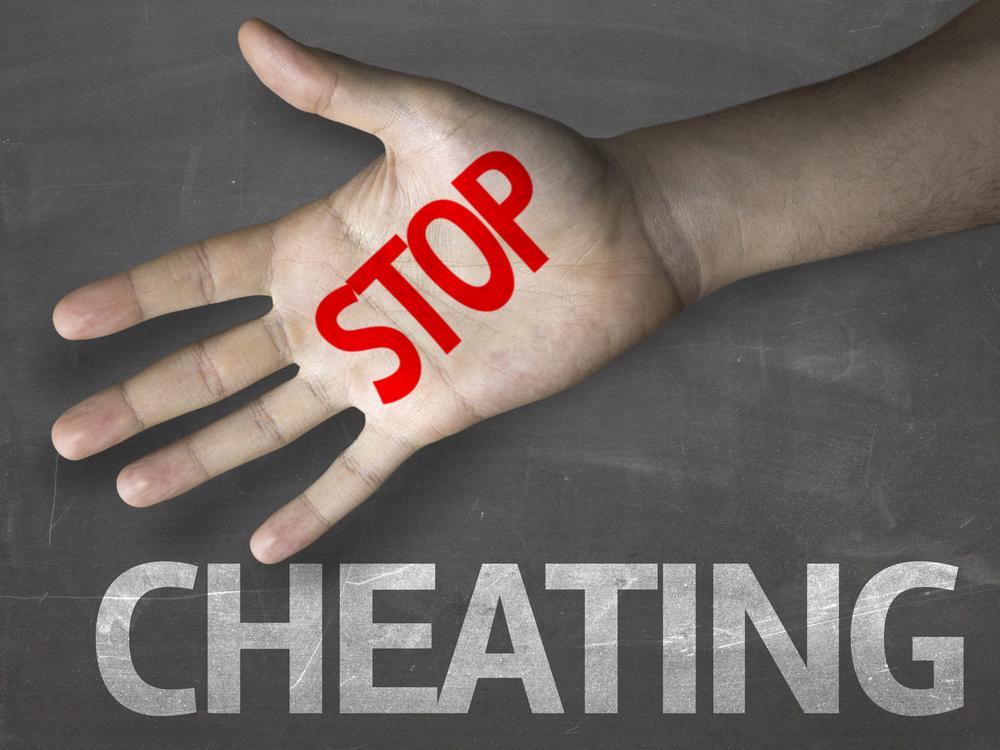
Cheating On Chess.com
On June 2, 2015 we disqualified two titled members from our Titled Tuesday tournament after we determined that they had violated our rules by using outside assistance (computer engines).
Update 2015-06-03:
Upon further review, Chess.com wishes to make an apology to our community, clarify its position on the topic of detecting the use of unfair assistance during online chess games, and refine our policy on how these situations will be handled moving forward.
Chess.com's goal is to create the best, most fun playing and learning experience for chess enthusiasts around the world. We are not in the business of gossip and scandal. And we don't need to engage in legality debates that that deny a simple truth: Short of confession, etc., there can never be 100% proof of cheating in online chess.
Our evidence is statistical and circumstantial. However, the level of certainty we derive from our current technology is more than enough for us to act based on our own terms and conditions. Period. Even more importantly, it is enough for us to act based on our goals: to keep our experience as good as possible for the majority of members.
We are simply doing our best. Is there room for error? Yes, there is. But it is insignificant enough that, by the time we determine a given account must be closed, we can do so confidently. We are a privately owned entity, with terms and conditions that state clearly that we maintain the rights to close accounts we deem to have violated our fair-play policies. We do our best to keep to those standards and policies, with the goal of keeping our environment the best one in the world for online chess.
All that said, it has become clear that our handling of specific recent events was ultimately more inflammatory than it needed to be, and for that, we are sorry. It's been distracting and upsetting. And it takes away from what our website is about (having fun, playing chess, learning about the game, and that's it). We are not in the business of judging people or stirring up controversy. That is not our goal or intention and it never will be.
From this point forward, we will deal with the players in question and all others privately. Not to keep secrets. Not to hide anything. But to keep to the integrity and goals are of our website and company.
Thank you all for your support and understanding as we do our absolute best to make Chess.com all you want it to be!
Danny Rensch
Vice President
Chess.com LLC
What Happened?
Using internal methods, Chess.com determined that an FM and IM violated our terms and conditions during the tournament. The systems we use to detect these violations are based on deep heuristics and statistical evaluation. We have spent years developing our technology, and continue to invest heavily in our fairness systems. We employ one full-time on-staff statistician, and another full-time "detective" of sorts.
At a very high level, we look at specific aspects of the user's activity on the board, and compare the consistency and quality of play to what is achievable by the strongest human minds in the game — as well as the strongest engines. We have analyzed millions and millions of games and developed clear profiles to distinguish between human, super-human, and engine-level play. In these two cases, the evidence collected was overwhelming.
.
.
I'd like to remind everyone of a few critical points, so that our intentions are not misinterpreted:
1) Chess.com would never have any motive to close the account of any member, other than to protect the integrity of our game and its honest players. The prizes taken from these players will simply be paid out to others. Furthermore, the time consumed to work through these "controversies" is always significant, and the experience is an unpleasant one for me and my team.
I say all that simply to clarify that dealing with confirmed incidents of cheating is sad for all involved, and that we only take action when we absolutely have to.
2) Though Chess.com's exact methods of detection must remain confidential (for obvious legal and operational reasons), if we were ever legally required to provide such documentation to authorities, we would be more than capable and willing to do so.
3) Finally, just to reiterate that we act only when certain, I will confirm that there remain several borderline-suspicious players who, though they will not have their accounts closed at this time, remain under constant scrutiny by our team.
We hope for this to never happen again in a Titled Tuesday event, but we are not naive about cheating in chess and the threat it poses to the future of our game.
What Did We Do?
Immediately after my live show, Chess.com staff member (Monitor) and I (Danny) reviewed multiple cases closely (as we always do after these events, before officially making any announcements or awarding any prize money). It was at this time that we confirmed the violations.
We then made the decision to close the accounts publicly, and I immediately informed both players via email of our decision. They were given the following options:
1) Deny. As we do when closing any accounts, we made it clear that we are prepared to stand by our decision and tools 100% -- regardless of their cooperation. They were informed that if they choose to go this route, they will no longer be welcome on our site.
2) Admit. In the come-clean option they are given a new account complete with titled membership. The account can remain anonymous or not (by their own choosing) and they are given a minimum one-year ban from playing in our Titled Tuesday tournaments. However, in order to ever play again in any of Chess.com's cash prize events (Titled Tuesdays, Death Matches, etc.) they must, at some point, choose to make their account's identity confirmed to the public and acknowledge their cheating on our site.
Not harsh enough? We disagree. We believe in second chances, we believe that everyone makes mistakes, and we believe that, like FIDE's decision to reinstate Sébastien Feller recently clearly implies, the onslaught of public scorn and loss of peer respect is often punishment enough. If they see the error of their ways, why should they not be allowed to play again?
What Comes Next?
This is the most I have ever spoken publicly on the matter of cheating and the actions we take. Why now?
- Banning titled players is a big deal, and we feel people deserve an explanation.
- We are more confident in our methods now than ever before. Having made significant strides over the last year and a half, especially in Live Chess detection, we see very few remaining gray areas in our cheat reports.
- Finally, the stakes are higher. We are earning the respect, and regular participation of the world's best chess players in our Live Server... and we want to keep it that way!
We must maintain our credibility among the honest and innocent. After some internal debate today on how to handle this entire matter we decided (for the better) that keeping things private would be wrong. What's more, it would not serve to instill confidence we want our members to have that they are playing against humans, not computer cheaters.
There are cheaters playing every day in online chess (and our site is no exception)... but we are taking every step to stop the offenders, and we are not afraid to act against anyone.
In conclusion, it is our intention to remain an industry leader in cutting-edge cheat-detection technology. We are committed to doing our best, and will settle for nothing less than the cleanest, highest quality playing experience for players of all levels.
Update:
We feel the need to disclose one of the closed account's response, summarized as:
"Your article about cheating is unacceptable. Please also post in your blog my answer, because in your way sides see only one side of problem. I NEVER used the programs. If you supposed that by your actions you not damagaed my reputation - you have a mistake. Answer to chess.com members: 'Unfortunately, Chess.com staff decided that in yesterday Titled Tuesday tournament I've used chess programs. This accusation is unacceptable without 100% proofs, not only by words of working of confidencial system.'”
Though we stand by our findings and ultimate decision, we wish the member nothing but the best in chess and in life.

